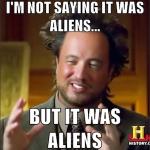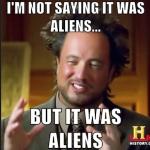Of all the ridiculous claims made in the popular science press, one of the biggest is that we have discovered the possibility of alien life on some remote exoplanet.
science journalism
It's often helpful for journalists who do not have specialized knowledge of complex scientific topics to write about them anyway, because if they can understand them and figure out how to communicate them, they can perform a tremendous public serv
Last week, international media outlets reported that asparagus causes cancer. It does not.
One of the many problems with academia is that it allows nutcases to flourish.
The job ad is appalling.
NPR, which to its credit at least attempts to cover science and health, is looking for a new Science Editor. Unfortunately, actually being trained in science is not required for the job.
One of the biggest problems of our hyperpartisan culture is that everything has been turned into a morbid game show.
Much buzz has surrounded President Trump's "Fake News Awards." Given that part of our mission is debunking pseudoscience and bogus health claims, we felt obliged to offer our own Fake News Award ... for junk science.
ACSH is in the business of promoting evidence-based science and debunking junk science. That rubs some people the wrong way.
We've been hard at work this year informing you of the latest developments in biomedical science, debunking junk science and bogus health claims, and explaining the science behind the headlines.












